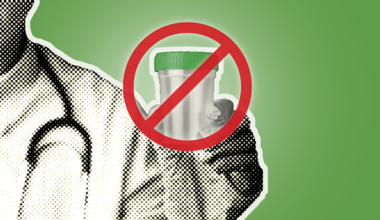Pennsylvania lawmakers passed a budget this week that misses an opportunity to help solve the state’s budget woes: adult-use marijuana legalization.
Failing to legalize cannabis via the budget means missing out on $420 million in annual tax revenue and billions in economic activity, according to advocacy group ResponsiblePA, which is asking legislators to prioritize cannabis legalization in 2026.
In February, staring down a serious budget deficit, Gov. Josh Shapiro, a possible 2028 Democratic presidential contender, yet again called on state lawmakers to raise money by legalizing and regulating adult-use cannabis.
Pennsylvania has one of the strongest MMJ-only markets in the country, with projected annual sales in excess of $2 billion, according to the MJBiz Factbook. Adult-use sales could supercharge that, advocates say.
During a 134-day budget impasse, advocates and lawmakers repeatedly offered cannabis regulation as a solution.
But the final agreement provides no additional funding for transit systems or state universities that cannabis could have provided.
Failure to legalize adult-use cannabis in Pennsylvania is missed opportunity
ResponsiblePA criticized the impasse, emphasizing the economic and public safety benefits of a regulated cannabis market.
“Pennsylvania’s budget crisis isn’t going away, as this deal simply kicks the can down the road when full cannabis regulation is a ready-made solution,” ResponsiblePA said in a statement.
“Instead of raising taxes or cutting vital programs, lawmakers could choose a path that supports small businesses, creates family-sustaining jobs, and addresses public safety concerns through a regulated marketplace.”
“Our neighbors have done it successfully – Pennsylvania can, too.”
A regulated cannabis market in Pennsylvania could generate $2.1 billion in first-year sales, $4.2 billion in total economic output and more than 33,000 new jobs, according to an analysis by FTI Consulting.
The state also would see $420 million in recurring annual tax revenue – funds that could be used to support transit, higher education and other underfunded programs.
Neighboring states like New York, New Jersey, Maryland, Delaware and Ohio have already implemented cannabis regulation, reaping significant economic benefit.
And Pennsylvania continues to lose business investment and tax dollars to these states, ResponsiblePA said.
Medical Disclaimer:
The information provided in these blog posts is intended for general informational and educational purposes only. It is not a substitute for professional medical advice, diagnosis, or treatment. Always seek the advice of your physician or other qualified healthcare provider with any questions you may have regarding a medical condition. The use of any information provided in these blog posts is solely at your own risk. The authors and the website do not recommend or endorse any specific products, treatments, or procedures mentioned. Reliance on any information in these blog posts is solely at your own discretion.






